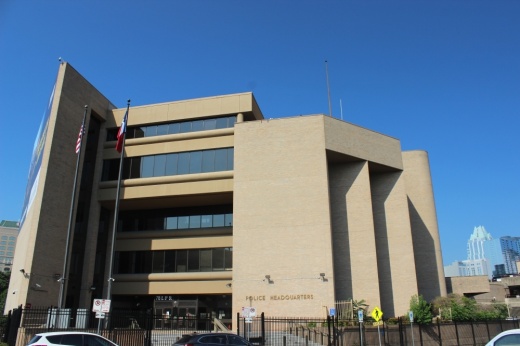The multipart report covers the police oversight office's first two full years in operation following its creation by City Council in November 2018, replacing the former Office of the Police Monitor. The OPO had previously released an end-of-year report in late 2019, although that document was less thorough than the review produced this spring.
In its comprehensive report released this week, the OPO covered the functions of its three main divisions centered on handling police complaints, community engagement and reviewing APD policy. Based on those areas of focus, the new report laid out how OPO tracked the hundreds of complaints against officers it received over the past two years as well as its working relationship with APD on training and response practices.
"A lot has changed in the past two years since the City Council introduced and created our office by ordinance in November of 2018," OPO Director Farah Muscadin said in a video statement accompanying the report. "Our office is divided into three divisions: complaints, communications and community engagement, and policy and research. We feel very strongly that civilian police oversight should not and cannot be limited to investigations of police misconduct. We take a holistic approach in terms of how we look at APD and how they can provide equitable policing throughout our community."
Tracking complaints
While OPO does not investigate officer complaints, the office does review all such submissions and their progression through the police department over time. Of the more than 4,000 "contacts" between members of the public and OPO recorded over the past two years, the office said just over 550 resulted in complaints that were eventually forwarded to APD for possible investigation. Separate from the oversight office's work, the police department also initiated an additional 340 formal complaints itself during that time.
The OPO's data also showed that contacts and complaints shot up during 2020 compared to 2019, in large part due to protests against police brutality that generated more than 300 complaints. However, the OPO did not provide a breakdown of how those complaints of alleged misconduct amid the protests were handled by APD. Aside from protest-related items, just over half of the formal complaints forwarded by the OPO to APD between 2019 and 2020 were investigated by the police department. Of those 129 investigations, 62% resulted in the police department determining there had been a violation of its policy.
Dozens of community complaints did not make it to the APD investigation stage across 2019 and 2020. Complaints can fail to reach the level of investigation for several reasons as determined by APD administrators, all of which the OPO said it disagrees with or "has raised concerns about."
"It is OPO’s position that complaints from community members should be investigated," the office's report stated.
APD and the OPO earlier this spring had also discussed the development of a new set of joint standard operation procedures relating to the police oversight office's interactions with APD internal affairs investigators, who handle complaints. While APD had initially committed to signing off on that policy update before April 30, an OPO spokesperson in early May said that expectation had been shifted back to the end of that month. As of June 7, the spokesperson said the office had no additional update on the status of the revised joint operating procedures.
While the number of complaints sent from the OPO to APD—including those related to public protests—increased by around 10 times from 2019 to 2020, the number of APD officers disciplined decreased by 20% year-over-year.
Written and oral reprimands were the most common discipline meted out within the department through both years, with 88% of the 200 officers disciplined in 2019 and 76% of the 159 officers disciplined in 2020 receiving such rebukes. Sixteen officers received temporary suspensions in 2019 compared with 21 in 2020, and four officers received indefinite suspensions between 2019 and 2020. Those indefinite suspensions, or terminated employment on the force, included four officers who: engaged in an inappropriate relationship with an alleged stalking victim, were dishonest amid a domestic violence investigation, skipped APD training and falsified related timesheet records, and joined in "inappropriate and racially disparaging conversations" with other former APD officers. As of June 18, the OPO had published information on 78 formal complaints filed so far in 2021. A total of 12 officers have been disciplined this year, including two receiving written reprimand, four receiving oral reprimands, and six receiving temporary suspensions, according to OPO records.
Policy and communications
The police oversight office's report also provided an overview of some of its headline reports and recommendations made over the past two years, in addition to summaries of its work with video review and public interaction through the COVID-19 pandemic.
OPO called its research operations "critical" to police accountability and transparency. The office highlighted its work including a series of reports on the worsening racial disparities among those pulled over by APD for traffic stops between 2015 and 2019, changes to policy to address officer rudeness, and the 2020 recommendation that APD training incorporate a broader history of policing and race in the U.S.—a topic that is now covered in the department's newly-relaunched cadet academy.
In addition to interacting with Austin residents on matters such as officer complaints, OPO also noted its "influential" role in an APD policy update regarding the release of videos summarizing "critical incidents," including police shootings and deadly interactions, several of which have since been produced. The OPO also highlighted its engagement work through attendance at dozens of community events, production of informational videos on police interaction across several languages, and the development of the Community Police Review Commission volunteer panel last year.
"OPO is committed to continuing excellent work and increasing transparency and accountability. The past two years have demonstrated that this work will continue to require OPO to build and expand while maintaining a solid foundation in the community. OPO continues to seek and implement opportunities for improvement to achieve our mission," the office's report said.





